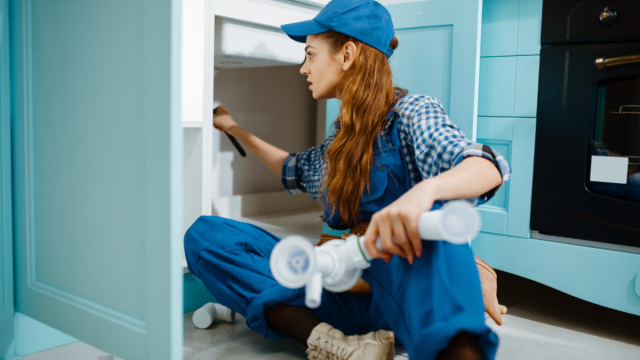What can I use to clean my drain pipes?
Contents
Your drain pipes are crucial for maintaining a healthy and functioning plumbing system in your home. But over time, they can become clogged with hair, soap scum, and other debris, causing water to back up and potentially lead to costly damage. Fortunately, you can use several effective methods to clean your drain pipes. One option is to use a homemade mixture of baking soda and vinegar, which can break down buildup and restore water flow. Another option is to use a drain snake or auger to remove any blockages physically. Whichever method you choose, take proper safety precautions and seek professional assistance if necessary.
How do plumbers clean drain pipes?
Drain pipe cleaning is a common service plumbers provide to keep your plumbing system running smoothly. Plumbers typically use various tools and methods to clean drain pipes, depending on the severity of the clog. One tool commonly used is a plumbing snake, which can be inserted into the drain to break up the blockage and clear the pipe. For more stubborn clogs, hydro jetting may be necessary. Hydro jetting is a method that uses high-pressure water to blast away debris and blockages from the inside of the pipe. Plumbers may also use chemicals and natural cleaners to break down clogs and clean the pipes. If you are experiencing issues with your drains, consider contacting a professional plumber for drain pipe cleaning to ensure the issue is properly resolved.
How do you clean drain pipes naturally?
Drain pipes are a crucial component of any plumbing system, responsible for carrying away wastewater efficiently. However, they can become clogged with debris, dirt, and hair, leading to slow drainage or unpleasant odors. Luckily, several natural methods exist to clean drain pipes without harsh chemicals. For instance, you can pour boiling water down the drain to dissolve grease and soap scum or sprinkle baking soda and vinegar to create a chemical reaction that breaks down clogs. Additionally, using a plunger or plumbing snake can dislodge stubborn obstructions. These simple yet effective techniques let you keep your drain pipes clean and free-flowing.
What are the items to avoid putting down your sinks?
When it comes to maintaining our plumbing systems, it is important to know what we can and cannot put down our sinks. While it may seem convenient sometimes to dump certain items down the drain, doing so can lead to major blockages and costly repairs. Some items to avoid disposing of down your sinks include grease, coffee grounds, potato peels, eggshells, and fibrous vegetables. Proper disposal of these items can help prevent clogs and other plumbing mishaps, keeping your pipes and wallet happy.
How to prevent future drain clogs?
Dealing with clogged drains is never a pleasant experience, so it is essential to take preventative measures to avoid this issue altogether. Some of the most effective ways to prevent future drain clogs include avoiding pouring grease, oils, and fats down the sink, using a drain strainer to catch hair and other debris, cleaning the drain stopper regularly, and using hot water and baking soda to flush out any blockages. By staying proactive and taking preventative measures, you can avoid the frustration and inconvenience of a clogged drain and keep your plumbing system in shape.


